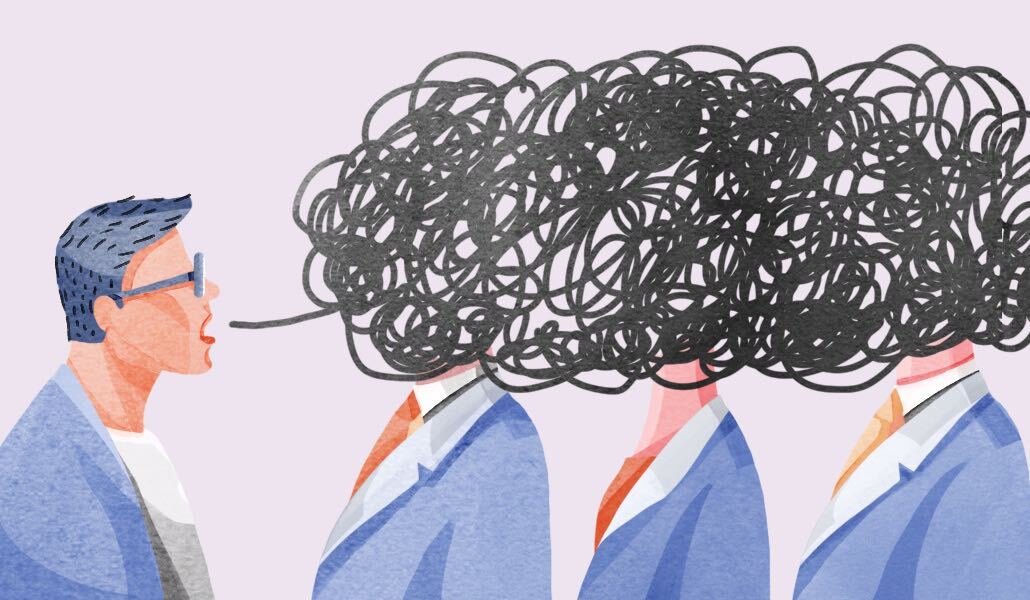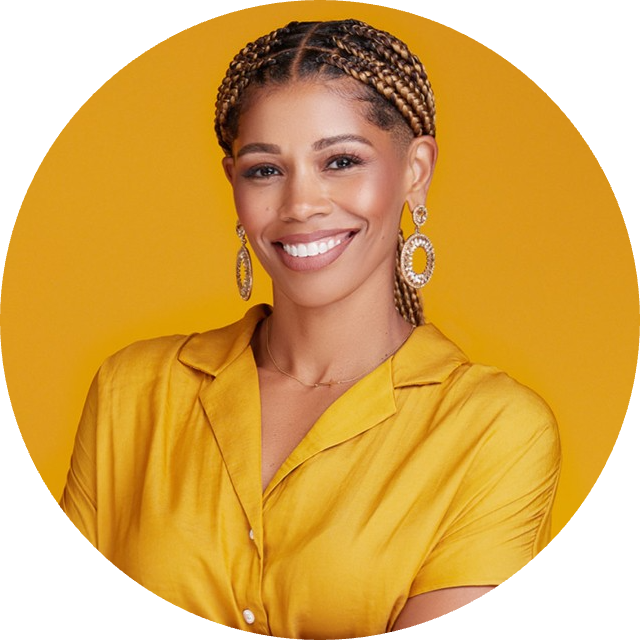‘May have had ugly, historical origins’: 10 words DE&I experts want ditched

Certain word choices and expressions used prolifically at work, need an urgent refresh in 2024, diversity, equity and inclusion experts say.
Some companies have tried in recent years to toss phrases like “that’s crazy” and “hey guys” out the window to be more inclusive of mental health and gender identities. In fact, Microsoft Word has a built-in inclusiveness spell check feature, which offers alternatives to words that might be insensitive to use. For example, with the word “insane,” when this feature is turned on, it informs writers that the term implies mental health bias.
But while we’ve come a long way, there are plenty of other words and phrases that are so ingrained, that most people are likely unaware that their use of them may be offensive or not inclusive. And those are the ones DE&I experts say need extra attention.
“It’s helping to get rid of some of the terminology that may have had ugly, historical origins, or have been used over the course of history to perpetuate marginalization or dehumanization,” said Eric Thomas, global DE&I officer at customer experience platform Genesys. “The more we understand how words can impact folks around us, the more opportunity we have to exercise empathy and action.”
Tom Kilgore, senior director of DE&I at eCommerce fulfillment solution provider Radial, agrees: “We all have an inherent obligation to ensure that we are using inclusive language in our everyday interactions. We’re not going to get it right all the time, and that’s OK, but it’s remaining self-aware of our language and how it impacts others.”
We spoke with Thomas, Kilgore and Jon’a Joiner Tyler, head of global inclusion and belonging at Genesys, to identify 10 words and phrases that believe should be left behind as we head into the new year, including suggestions on what you can say instead.
1. Master/Slave
Used in a sentence: “I am a Master at coding. I feel like a Slave to my job.”
Replace with: Expert, tied to my job.
2. Blacklist/Whitelist
Used in a sentence: “The IT department implemented a new security measure by creating a blacklist to restrict access to certain websites and a whitelist to allow access only to approved software applications.”
This is one that Thomas experienced just three months ago at work.
“I got an email from one of our employees on the sales solutions team who is responsible for proposals that go out the door,” said Thomas. “The team was working to build customized categories and wanted to use terms like whitelist or white glove service. One of the guys on the team reached out to me to flag if it’s something we should be concerned about. We had a dialogue and as a result, they decided to use a different term.”
Replace with: Disapproved list, approved list; blocked list, permitted list.
3. Low on the totem pole
Used in a sentence: “As the newest team member, I understand that I might be low on the totem pole, but I’m eager to contribute and learn as much as I can.”
Replace with: Entry level, beginner, at the bottom.
4. Minority
Used in a sentence: “Our company is actively working to increase diversity and inclusion by creating more opportunities for minority groups within the organization.”
Replace with: Underrepresented.
5. Third world country
Used in a sentence: “Our company is exploring partnerships to support education initiatives, aiming to make a positive impact in third world countries.”
Replace with: Developing country.
6. Blindspot
Used in a sentence: “The project we’re working on has a lot of blind spots.”
“The term uses vision impairment to essentially describe the lack of knowledge or willful ignorance,” said Kilgore. “Although we use it innocently, this characterization is not respectful of people who are blind or who have vision impairment. It’s one we use all the time.”
Replace with: Shortfall, weak spots.
7. Long time, no see
Used in a sentence: “Long time, no see. I hope you’ve been doing well since we last caught up.”
Replace with: Nice to see you again, it’s been a while.
8. Tone deaf/deaf ears
Used in a sentence: “I hope what I’m saying doesn’t fall on deaf ears.”
Similar to blindspot and ‘long time, no see,’ it’s another term that is being used to describe something negative by exploiting a disability, said Kilgore.
Replace with: Insensitive, inconsiderate.
9. Handicapped
Used in a sentence: “She thought the new project would be a handicap, but it turned out to be an opportunity for growth.”
“It’s important to lead with empathy and don’t discount or discredit people’s experiences,” said Joiner Tyler. “Even if it’s not your experience, listen and take these things seriously and the impact it can have.”
Replace with: Hold us back.
10. Low hanging fruit
Used in a sentence: “Let’s go for the low-hanging fruit for now.”
The term “low hanging fruit” might conjure up very different meanings for some. The term might remind people of color of Billie Holiday’s song “Strange Fruit.” In the song, released in the 1950s, Holiday compares the bodies of lynching victims to fruit hanging from trees.
That’s the case for Kilgore – “the origins of that really harkens back to a dark time in American history during the Jim Crow era.” Low hanging fruit has a very different meaning, but for someone who witnessed lynching or who knew of loved ones who were lynched, the term might remind them of these practices.
Replace with: Easy win, quick win, something that’s low risk, high return.

